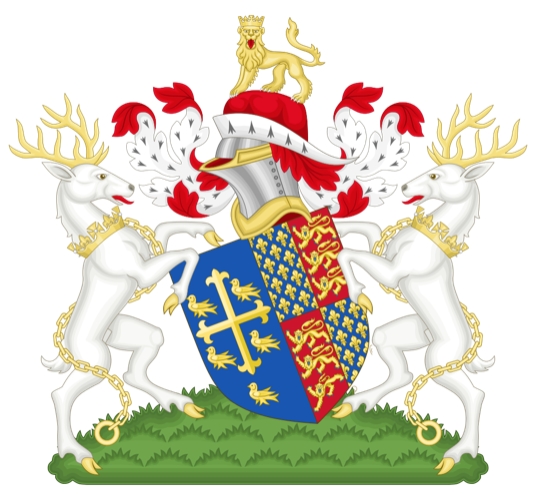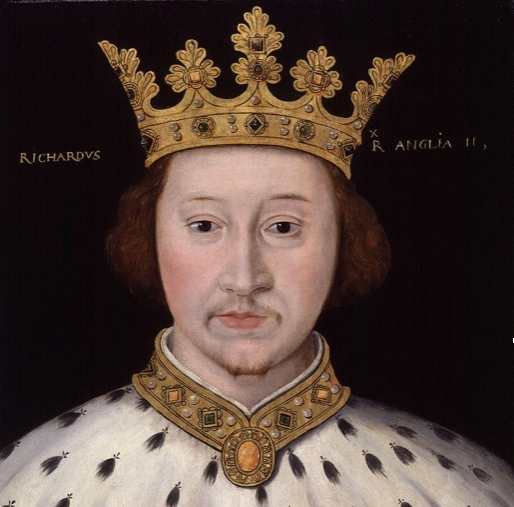
Image Credit: Contributed by author
October 20, 2015 - 8:01 AM
Richard II of England was surrounded by greatness, both generational and concurrent. His predecessor Richard I was known as "the Lionheart," and whatever his true failings he is known to posterity as a brave king and legendary warrior. His namesake Richard III was the last English king to die on the battlefield and the last of the Plantagenet line, and whatever his true failings his short and painful reign is known to history for loyalty and his endowment of King's College at Cambridge.
Richard II's own father was Henry the Black Prince, the greatest warrior of his generation and a man renowned for competency. John of Gaunt, brother of the Black Prince and the richest man in England, was his advisor during both his youth and ascendancy and left his imprint on England as chief among Richard's "evel counseilers" (evil counsellors).

The Boy King's coat of arms
Image Credit: Contributed
Richard II displayed none of the greatness and all of the worst characteristics of his dynasty and historical contemporaries. He came to be king at the age of ten, in 1377, in the shadow of his father. The disasters that sowed the seeds of the War of the Roses and the end of the Plantagenet line began in the very same year with the first of three crippling poll taxes that sparked rebellion across the land and culminated in the Peasant's Revolt of 1381.
When the rebellion came, led by Wat Tyler, Richard's boyish impulse was to negotiate rather than fight. He agreed to the rebel demands, the rebel leaders saw it as weakness and increased their mayhem, and if not for the actions of the Mayor of London the entire countryside would have been swept with insurrection. He took from this lesson the seeds of the absolutist tendencies that pervaded his reign.
Intermittent periods of crisis, civil discord, and endemic corruption characterized the next few years of Richard's reign, battling first the French, then his own Parliament, the Irish, then the Commons, then his own nobles, then the French again, and finally the Scots. Through it all, the men who surrounded Richard grew rich on corruption and influence peddling.

The Boy King
(SCOTT ANDERSON / iNFOnews.ca)
Richard's state of mind is a subject of never ending debate in the rarefied ether of historical study, with historians diagnosing him variously with everything from schizophrenia to general foolishness, but he was at the very least a narcissist, referred to in his reign as a "most beautiful king," with a "face which was white, rounded and feminine." Near the end of his days a new convention arose, that of calling the king "royal majesty" or "high majesty." He stuttered and paused when he became excited. He had nice hair.
The corruption that surrounded him, in conjunction with his general incompetence, finally brought him down. In the end he lost his kingdom and ultimately his dynasty, ending his days in the year 1400, probably of starvation, in the dungeon of Pontefract Castle.
Richard's reign was one of startling incompetence. It stood for high taxes, endemic corruption, a losing foreign policy, a narcissistic personality and an absolutist mindset. But for an accident of birth and his father's name, he would have lived his life as the mediocre man he was.
— Scott Anderson is a Vernon City Councillor, freelance writer, commissioned officer in the Canadian Forces Reserves and a bunch of other stuff. His academic background is in International Relations, Strategic Studies, Philosophy, and poking progressives with rhetorical sticks until they explode.
News from © iNFOnews, 2015